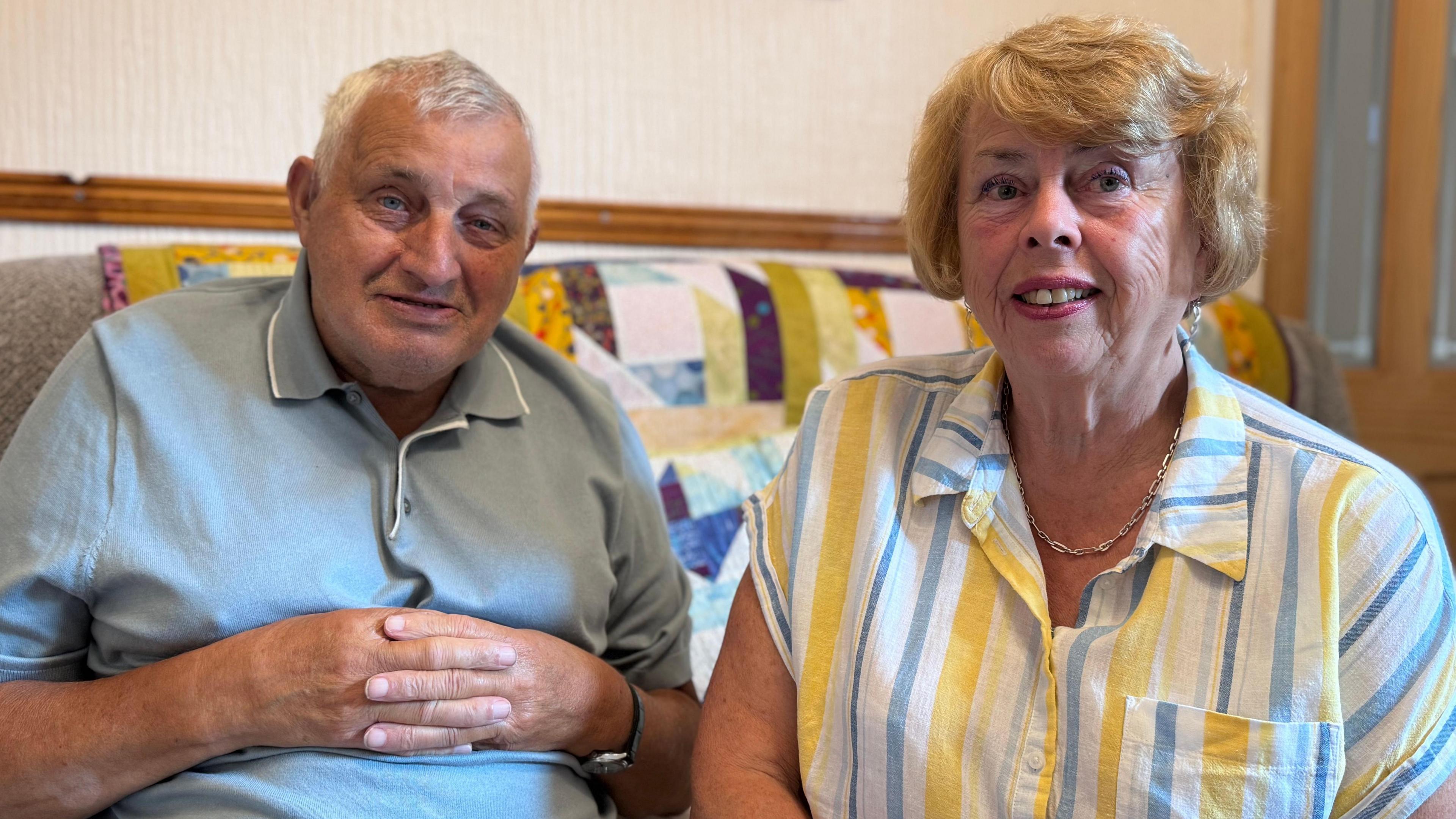AI used to help diagnose dementia in UK first
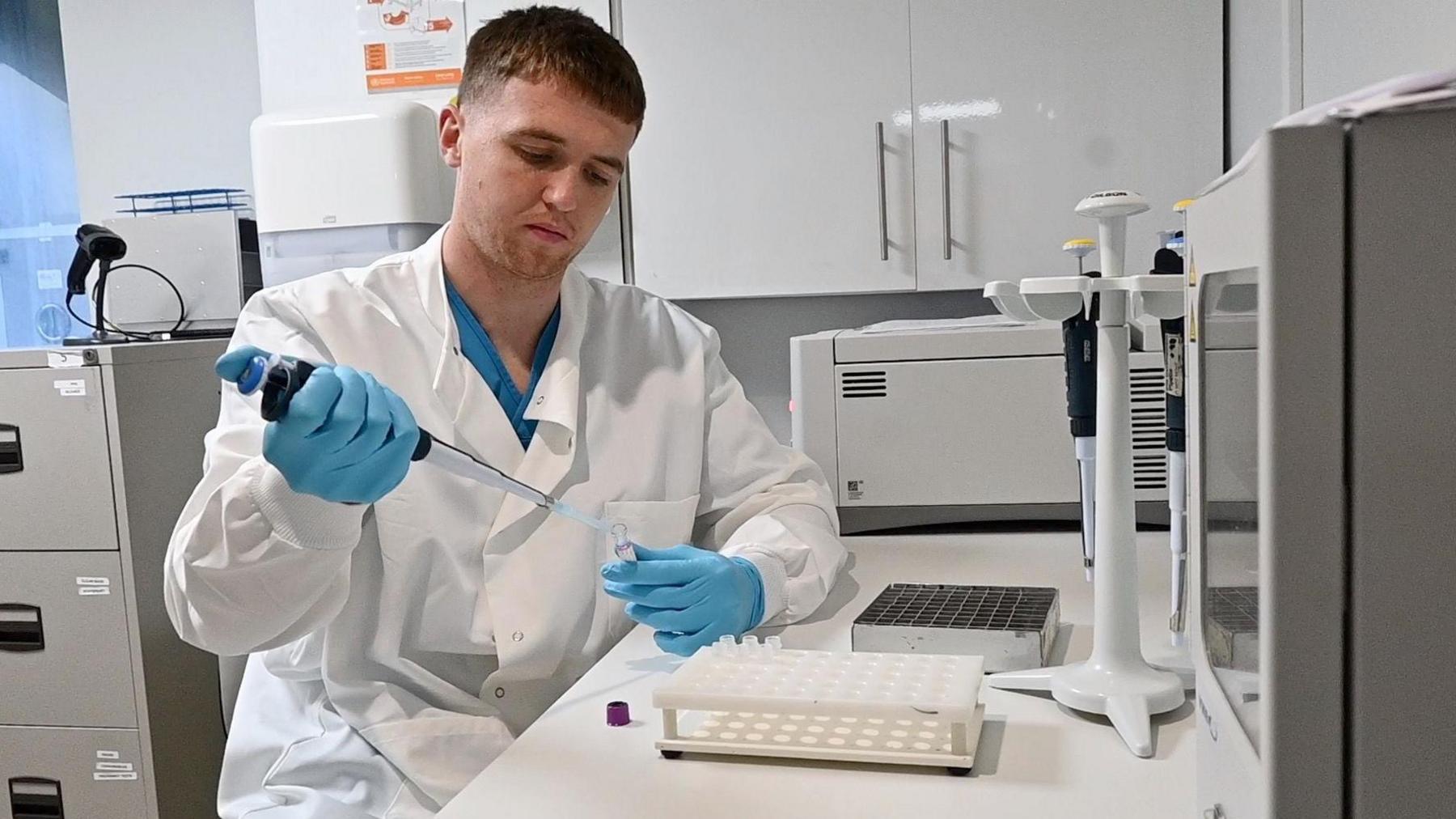
It is hoped that the new study will lead to quicker diagnosis and shorter waits
- Published
Artificial intelligence (AI) is being used to help diagnose dementia more quickly and accurately.
Aneurin Bevan University Health Board, in south east Wales, is the first in the UK to begin the study, which will eventually be rolled out to 1,000 patients across the UK.
Currently, patients with unclear symptoms, such as retired postmistress, Kathryn White can wait years for a diagnosis.
Mrs White, 74, from Pontllanffraith, Caerphilly, had dozens of tests and waited two- and-a-half years to be diagnosed with Alzheimer's.
Fans with dementia walk out with Wales footballers
- Published10 October
'Friends stop calling' - The isolation of a carer
- Published14 October
Man, 43, with dementia raises thousands for centre
- Published9 October
The study combines state-of-the-art blood tests to detect biomarkers, which detect tiny proteins in blood, and can show early signs of Alzheimer's. AI is then used to pull the results together.
Kathryn and her husband Michael have welcomed the study.
She first realised something was wrong when she became confused while driving to a friend's house, a journey she had made many times.
"I couldn't remember how to get to Cardiff, they lived in Peterston-super-Ely, and I couldn't remember how to get there," she said.
On another occasion, Kathryn got lost on the way to meet her brother in Cardiff Bay and had to call Michael for help.
"She rang up and said I'm lost I don't know where I am, it was then we went to see our local GP," said Michael.
"We went through cognitive tests, and then every sort of test known to mankind, CT scans, MRI scans, a PET scan, which I had never heard about before.
"Everything came back inconclusive, and this was over a two-and-a-half year period."
After having a lumbar puncture test, which involved taking fluid out of her spinal cord, Kathryn was eventually given a dementia diagnosis, which Michael described as a bittersweet experience.
A spokesperson for the study said that while a lumbar puncture is an effective way to aid accurate diagnosis of Alzheimer's, blood biomarker testing was a less invasive procedure, which may have enabled Kathryn to be diagnosed sooner.
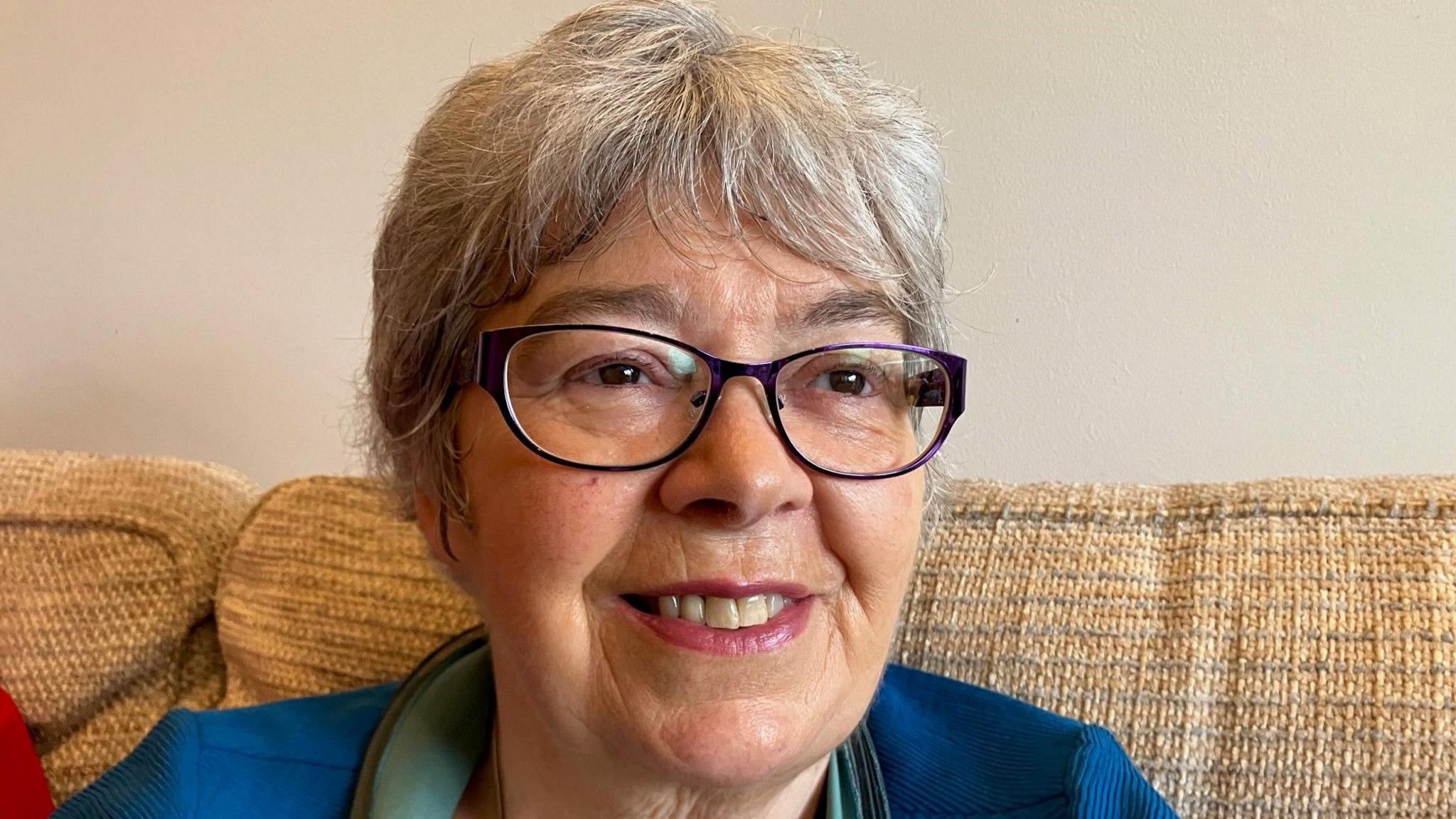
Kathryn White was diagnosed with Alzheimer's in July 2024
It is hoped the study will help cut waiting times so more patients can be treated and supported soon after their initial GP referral.
"We know that in the next couple of years, there'll be millions of people across the world who have dementia and the most common form is Alzheimer's," said Dr Chineze Ivenso, Health and Care Research Wales' (HCRW) lead for dementia and consultant in Old Age Psychiatry at the health board.
"In Wales, as in most parts of the UK, we have an ageing population and most cases of dementia are in older people - so we have to face this demographic explosion and we need to change the way we do things.
"My hope is that this research will give us the tools to give patients treatment and support at an earlier stage of their disease."
How does it work?
Traditionally, dementia is diagnosed by looking at a patient's history, symptoms, brain scans and cognitive tests to assess a patient's memory and problem solving skills.
But new easy-to-use blood tests can now also detect "biomarkers" which will detect tiny proteins in someone's blood. This can show early signs of Alzheimer's.
"These biomarkers are so exciting," said Dr Ivenso.
"So (the biomarkers) along with the AI will make it likely that the accuracy of our diagnoses will be better.
"We know from evidence that about 70% of the diagnoses we make are accurate but there's 30% who actually don't get an accurate diagnosis."
During this study, patients will get these tests soon after being referred to a specialist memory clinic.
Doctors are hoping to get a clearer picture earlier on by using AI to pull results together.
During the trial, this new way of working will operate alongside standard NHS procedures.
What is dementia?
Dementia is used to describe symptoms caused by conditions that damage brain cells and the connections between them.
Alzheimer's disease , externalis thought to be caused by the abnormal build-up of proteins in and around brain cells.
The likelihood of developing Alzheimer's disease doubles every five years after the age of 65. However, about one in 20 people with the condition are under 65.
Just under one million people are thought to be living in the UK with dementia, with rates expected to rise significantly in the next 15 years as the population continues to become older.
There is no cure for Alzheimer's. However, current treatments can be effective in managing the symptoms and newer treatments are on the horizon.
The annual cost of dementia in the UK is estimated to be £42bn as of 2024, with this figure projected to rise to £90bn by 2040.
The study is led by Imperial College London and is sponsored by AI neuroscience company, Prima Mente, with the Welsh leg of the trial supported by HCRW.
Dr Nicola Williams, director of research, support and delivery at HCRW, said the study had built on a strong track record in Wales of patients taking part in medical research.
She said they had supported about 250,000 people taking part in trials in Wales over the past 10 years.
Related topics
- Published9 October
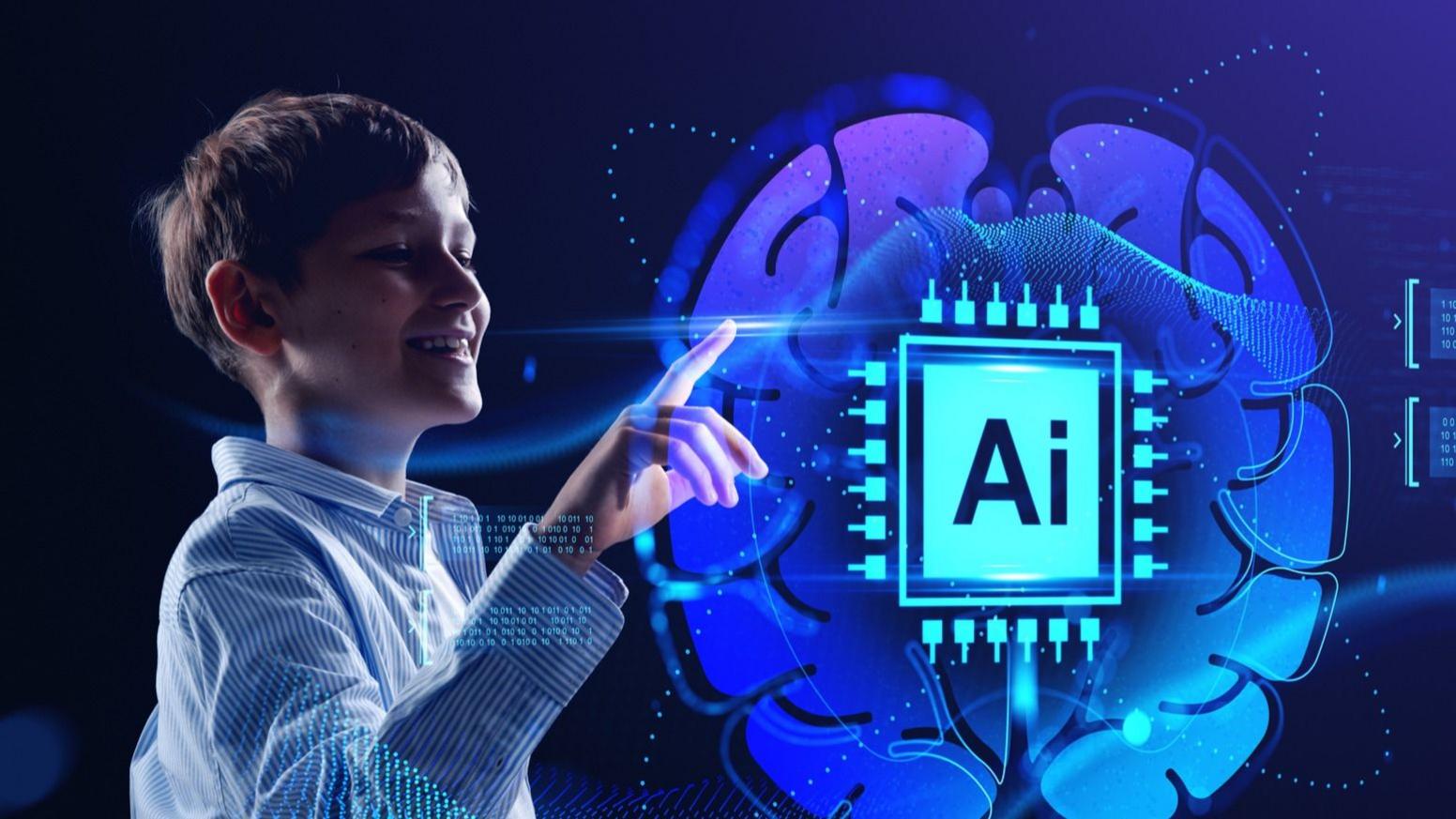
- Published29 April
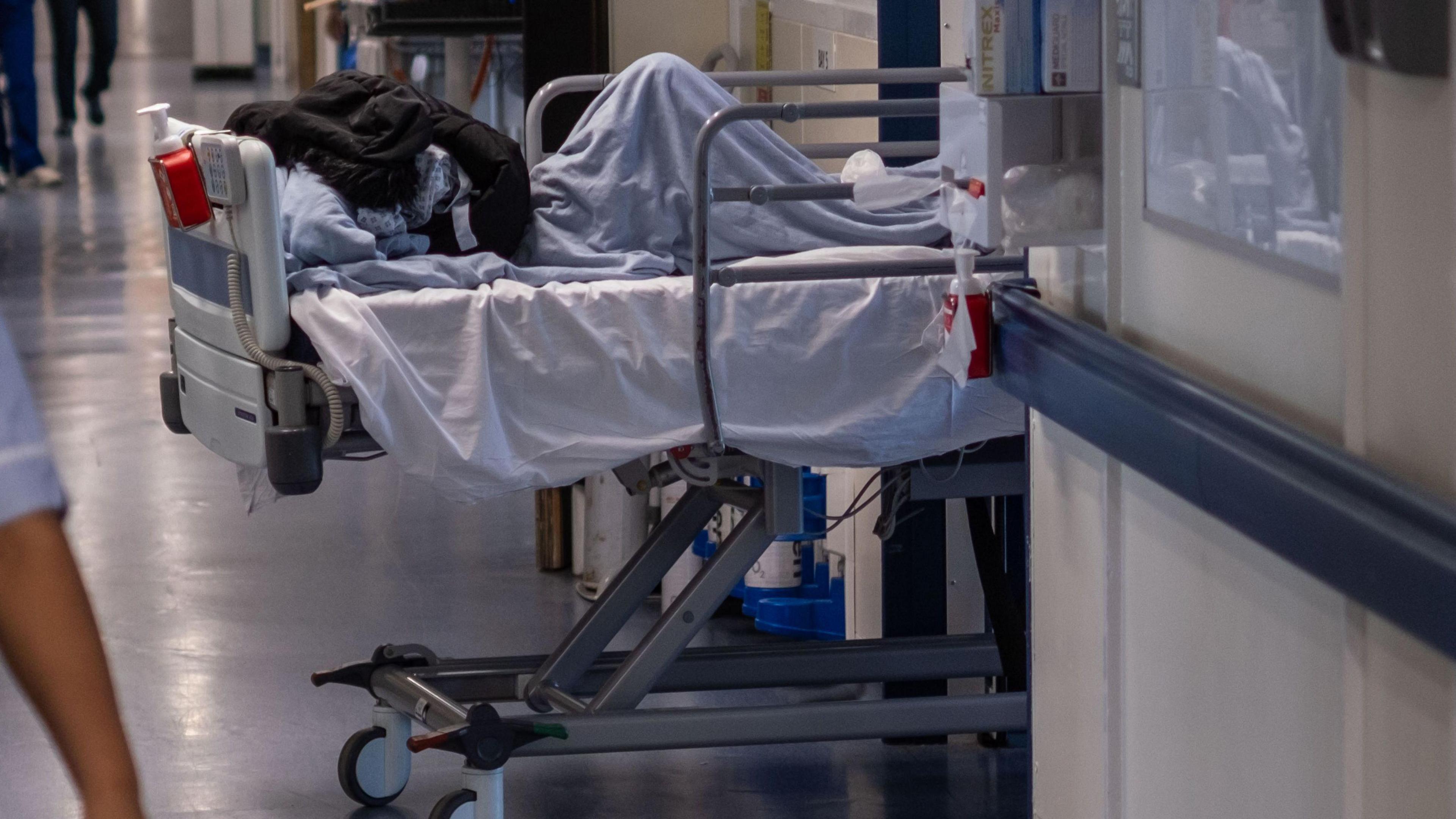
- Published13 September
